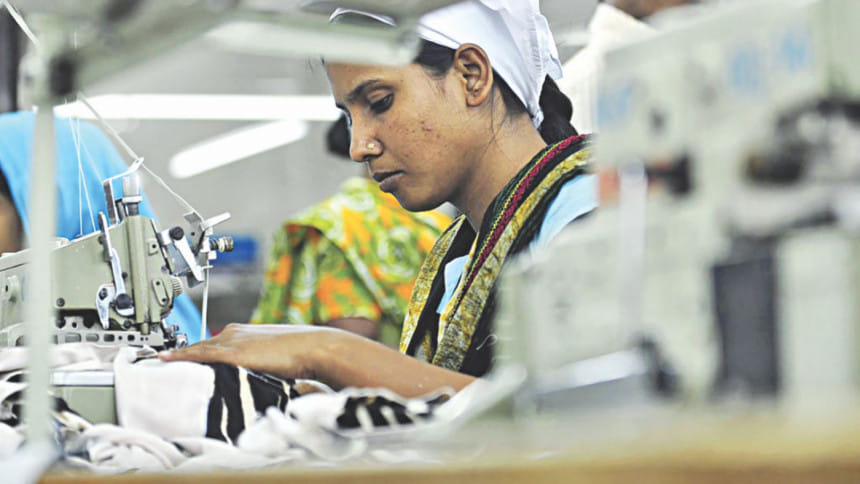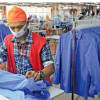Enhancing equality within RMG industry

All men are created equal, as the United States of America's Declaration of Independence states, and this is a principal that should be admired and adopted by all developing nations in the world today. But how far has this principal been implemented, and what improvements can be made to further develop this ideal within the RMG sector of Bangladesh?
Equality is a term that covers many aspects. For this discussion, it's important to consider some of the aspects related to this sector and acknowledge the steps that have already been taken as well as the ways in which further strides can be made for the benefit of all: 1) equal rights for workers regardless of gender, race, religion, sexual orientation or physical condition—workers should be judged on the basis of their abilities and be paid accordingly; 2) equal responsibilities of all stakeholders within the RMG supply chain to ensure fair wages, safety in workplace, sustainability, transparency, and environmentally sound best practices; 3) equal treatment from supplier to customer, whereby the supplier can expect to be treated with respect and also expect responsible purchasing practices from their customers; 4) equal opportunity for all supply-chain partners and garment workers.
Equal rights for workers can be best assured by a combination of legislative measures as well as awareness of the business owners and their management about the advantages to be gained through employment of workers based on their capabilities rather than gender or other personal attributes. Recent government initiatives including amendments to the Labour Law in 2013 and Labour Rules in 2015 have made inroads into ensuring equality in the workplace, and the introduction of training initiatives including those related to effective workplace cooperation and Essentials of Occupational Safety and Health (EOSH) conducted by the BGMEA, BKMEA and BEF, with support from ILO-ITC since 2014, to establish a culture of occupational safety and health and respect at the factory level, go some way to improving the situation, but I believe that we can do more.
Equal responsibility within the RMG industry has been greatly helped by initiatives launched by the Bangladesh government and other bodies, which include the recently formed Tripartite Consultative Committee (TCC) that addresses labour and workplace related issues in the RMG sector and is a substantial step towards forming a collaborative and all-inclusive entity. It was established specifically to deal with all unresolved or disputed issues within the workplace. Initiatives such as these, together with the work undertaken with the guidance of Accord and Alliance and other agencies, have created an environment in which ethical, environmental and sustainable standards are not only considered the norm, but also the minimum level that any RMG entity today has to abide by in order to gain necessary compliance certification from the customers.
Equal treatment from supplier to customer is a contentious topic, but one that needs addressing. We in the Bangladesh RMG industry are subject to the harshest scrutiny regarding all aspects of health and safety at work, compliance and structural standards following the tragic events of April 23, 2013 at the Rana Plaza. The Accord, Alliance, and National Action Plan (NAP) initiatives, implemented since that fateful day, have ensured that the RMG sector has greatly improved and now has some of the highest rated LEED factories in the world, complying with the highest ethical and environmental standards throughout the industry. However, the investment to achieve such improvements is not always recognised by the immediate customer, and there is an unhealthy culture that regards Bangladesh as a low-cost source, no matter what the price. Equality at this level surely demands that the buyers respect the investments and the advances made by the RMG industry in Bangladesh and also realise that these changes have come about through significant investment in both plant and machinery and that, in a world of escalating raw material costs, some price levels are artificially supressed. Surely, the time has come for an open dialogue between supplier and buyer to fully appreciate the improvements and investment that has been made to ensure a sustainable, environment-friendly industry, and for the purchasing habits to change?
Equal opportunity for all supply-chain partners and garment workers is something that should be a fundamental principle in our way of working. "Treat others as you would want to be treated" is a maxim that I believe all should follow. Here, I feel it is a question more of approach—whether it be a question of mutual respect, or recognition of where training is required to benefit individuals and ensure their growth. The government initiatives to recognise the importance of female workers within the RMG sector should be applauded (including the increase by 20 percent of the number of female labour inspectors to oversee both workplace safety and workers' rights, but to also help interaction with female RMG workers, for example).
The 8th Edition of the Bangladesh Denim Expo, to be held in Dhaka on May 9-10, 2018, is now upon us, and the theme for this season's Expo is "Equality". We hope, by bringing this theme to the fore, we can promote to our international audience the achievements that Bangladesh has made in reducing inequalities within the RMG industry, as well as ongoing initiatives that will further enhance our reputation as a world class resource. Furthermore, we hope to open a forum for healthy discussion on what further initiatives can be taken to continue to develop a more level playing field for all the stakeholders in the RMG supply chain.
Mostafiz Uddin is the Founder & CEO of Bangladesh Apparel Exchange (BAE) and Bangladesh Denim Expo. He is the Managing Director of Denim Expert Limited. Email: [email protected]










Comments